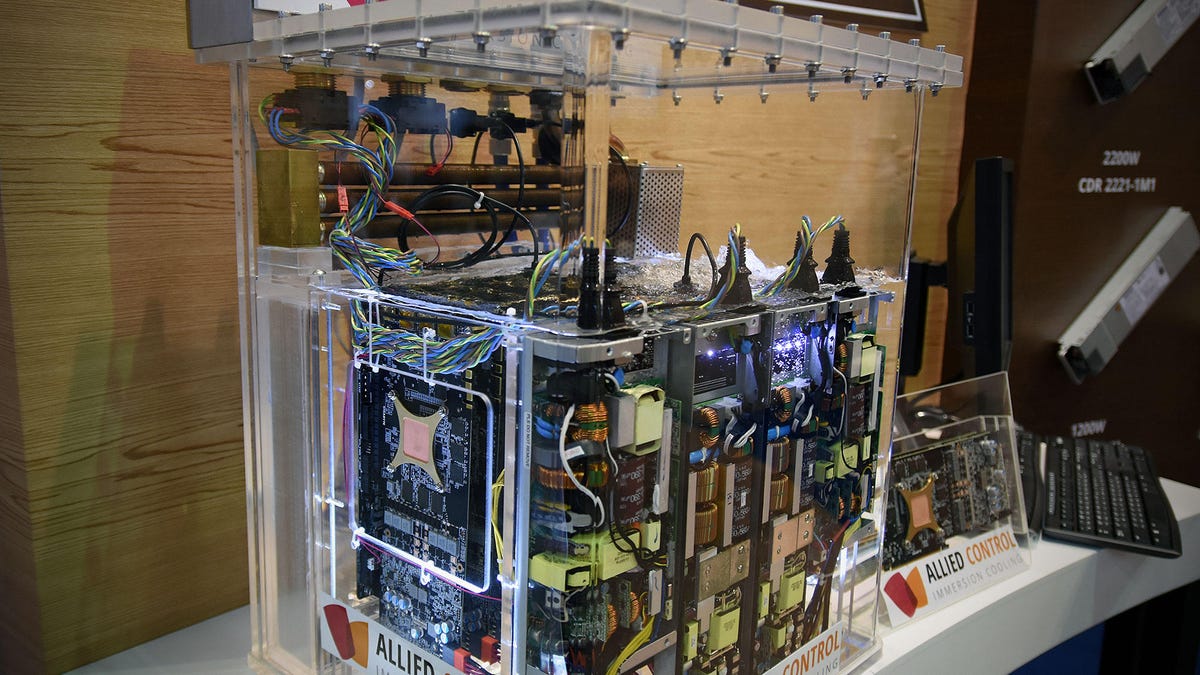This box of graphics cards is immersed in liquid to keep cool
Ten Nvidia GTX 1070s. Two Intel Xeon motherboards. In a box filled with coolant. Welcome to Computex.

There are ten Nvidia GeForce GTX 1070s inside running at full load.
If I told you a great way to keep your flaming hot PC components cool is to dunk them into a mysterious liquid you'd probably think I'm crazy.
I'm not. Allied Control's Immersion Cooling demo at Computex Thursday was certainly cool. The company squeezed 10 Nvidia GeForce GTX 1070 graphics cards, stripped of their cooling fans, as well as two Intel Xeon motherboards, into a small clear box, then filled it with a liquid called Novec from 3M.
The result is a box that doesn't explode from all the combined heat, thanks to a two-phase cooling system that relies on the Novec fluid boiling at 61 degrees Celsius (141 degrees Fahrenheit) to dissipate it. The Novec then condenses back to a liquid once it gets cooled by a water-based condenser at the top.
I dipped my finger into a bottle of Novec and felt my finger go cold as the liquid quickly evaporated from my body heat alone. I'm told you can dip your finger into the fluid in the box, even as all the electrical components are running, as Novec is nonconducting. That said, you probably don't want to as it's pretty hot, as I could feel from touching the sides of the box.
The liquid inside is boiling at 61 degrees Celcius.
Just don't expect to be able to use this at home. Allied Control's immersion cooling system is used in a data center in Georgia (the country, not the state), and temperatures inside are kept to a relatively cool 38 degrees Celsius (100 degrees Fahrenheit). The company was bought up by a BitCoin mining group called BitFury in January this year, which is no doubt using all those chilled GTX 1070s to churn out ever more digital currency.
Check out the rest of CNET's Computex 2017 coverage here.

